Shop Rental Agreement Samples
-
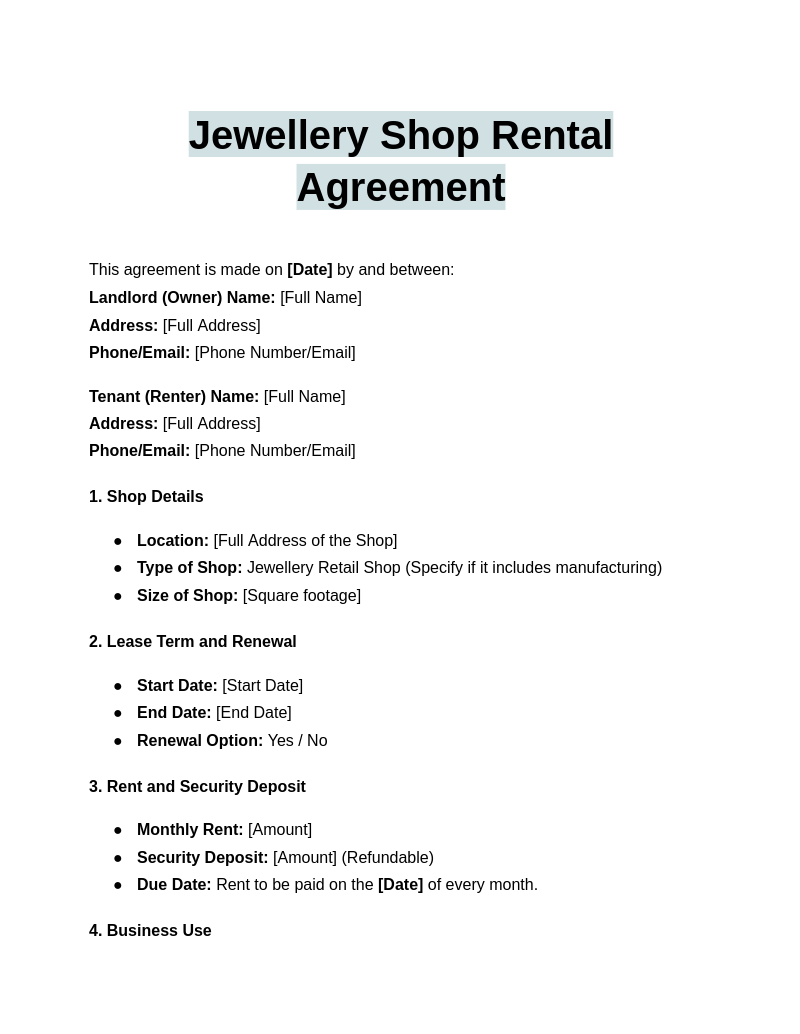
Jewellery Shop Rental Agreement
download now -
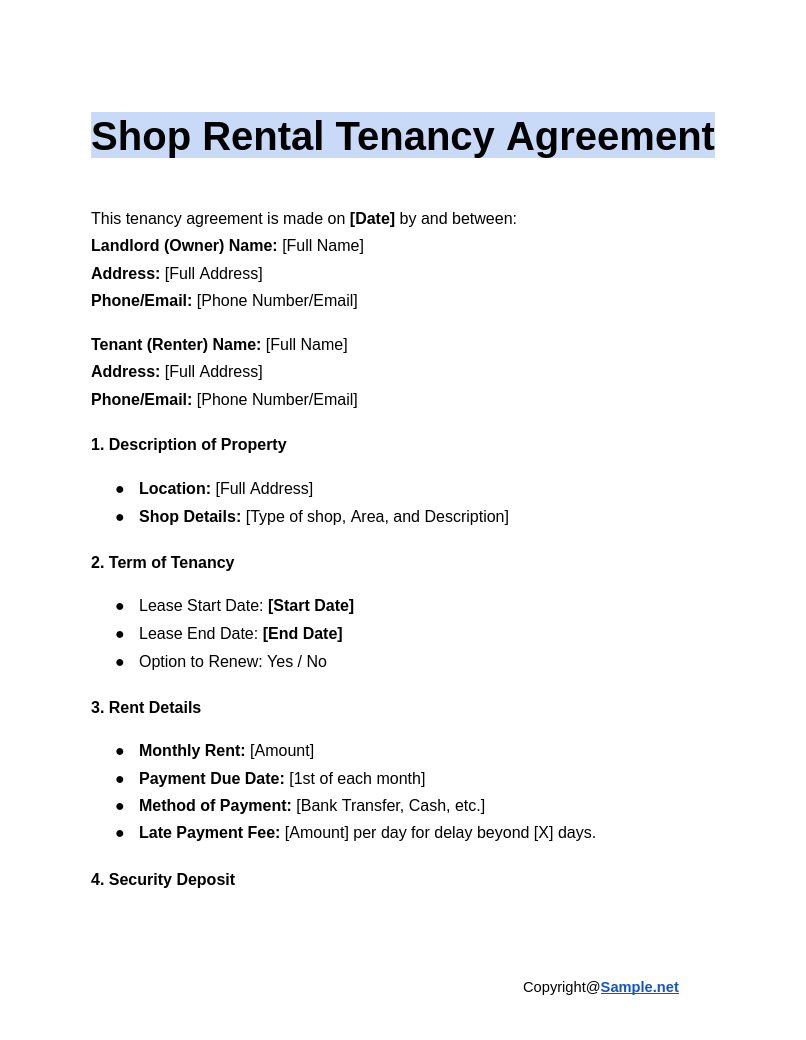
Shop Rental Tenancy Agreement
download now -
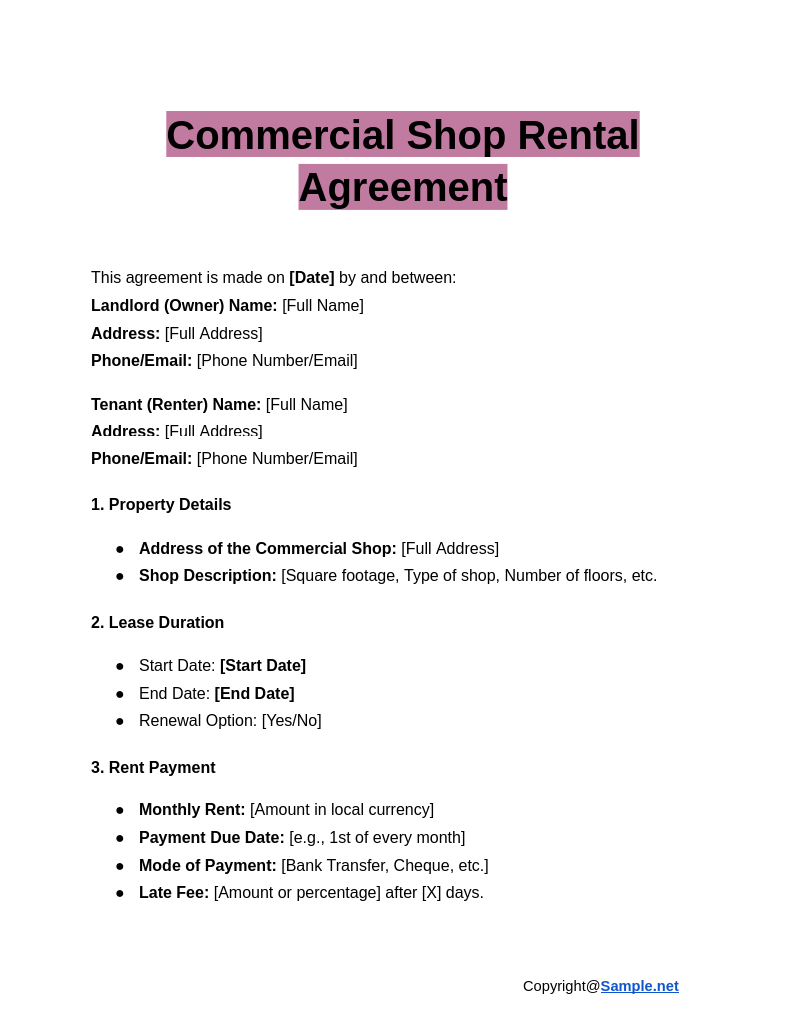
Commercial Shop Rental Agreement
download now -
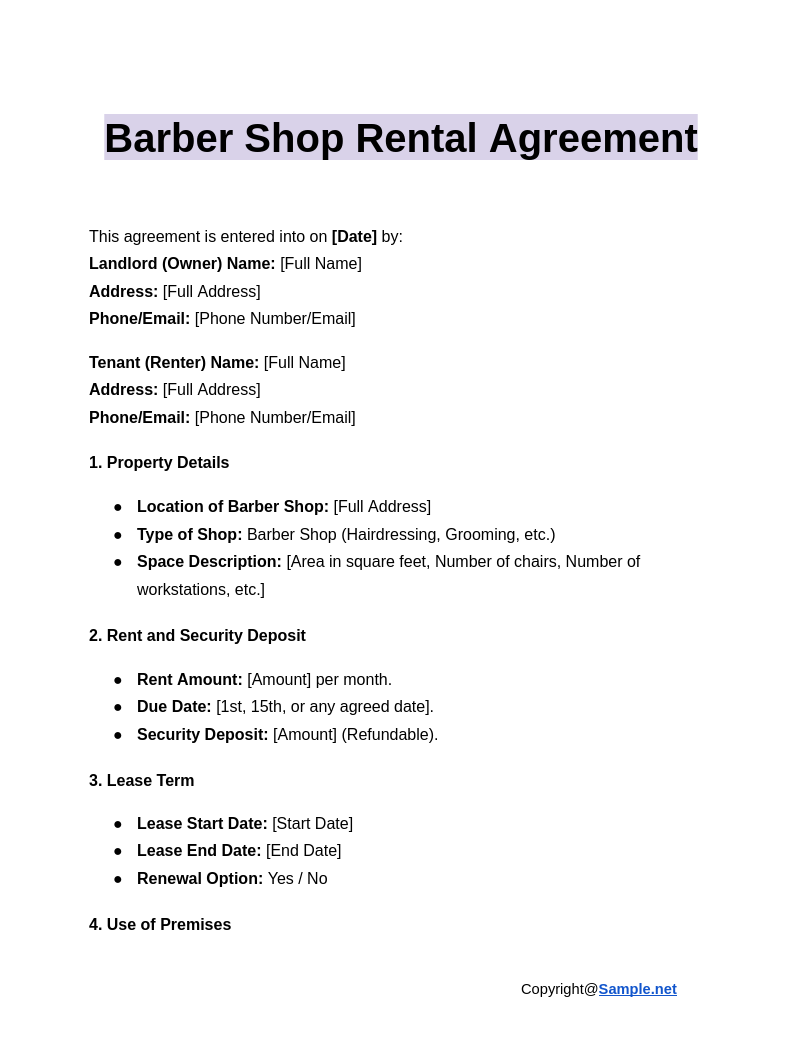
Barber Shop Rental Agreement
download now -
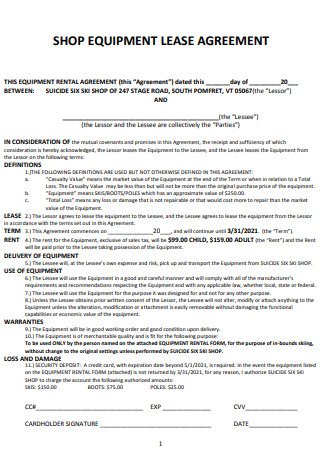
Shop Equipment Lease Rental Agreement
download now -
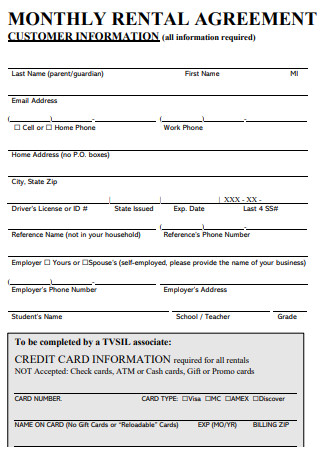
Monthly Shop Rental Agreement
download now -
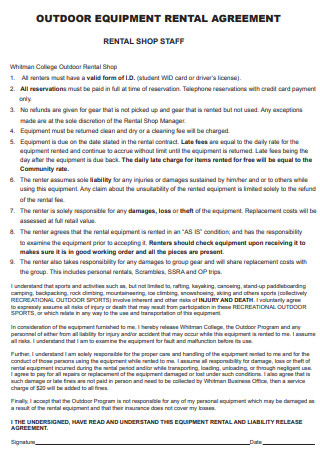
Shop Outdoor Equipment Rental Agreement
download now -
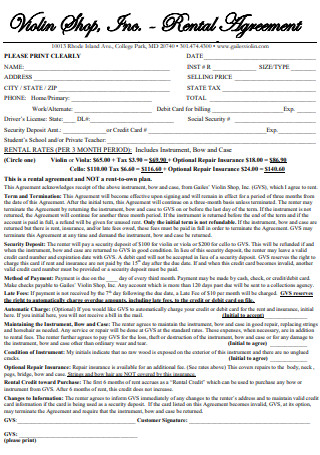
Violin Shop Rental Agreement
download now -
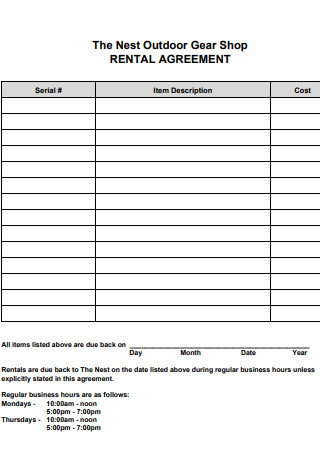
Gear Shop Rental Agreement
download now -
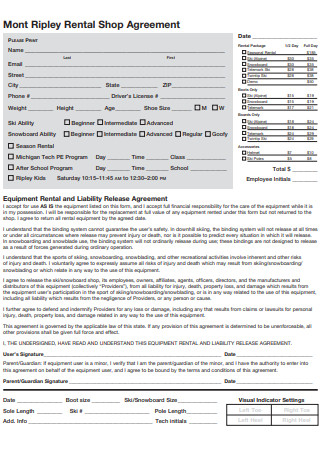
Shop Rental Liability Release Agreement
download now -
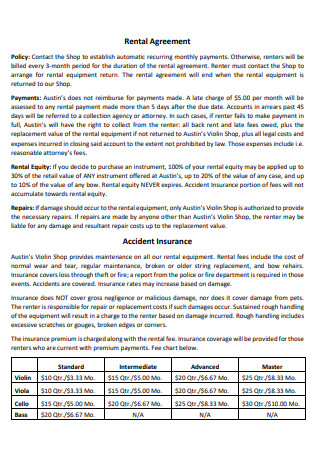
Shop Rental Accident Insurance Agreement
download now -
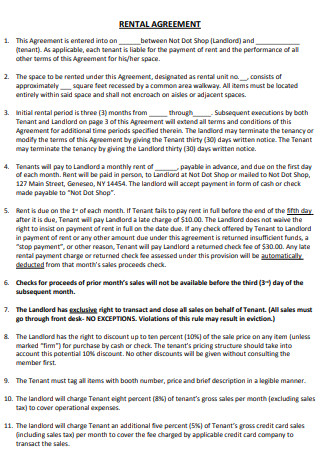
Shop Landlord Rental Agreement
download now -
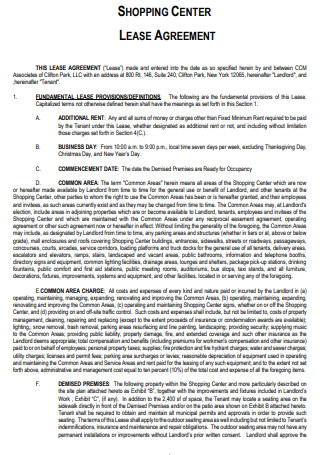
Shopping Center Rental Agreement
download now -
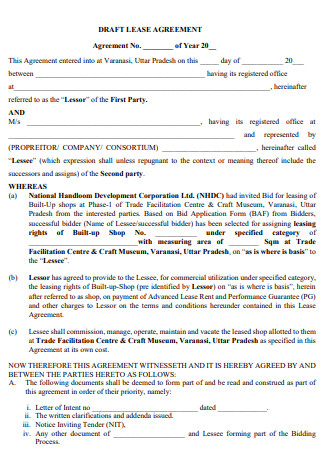
Built-up Shop Rental Agreement
download now
FREE Shop Rental Agreement s to Download
Shop Rental Agreement Format
Shop Rental Agreement Samples
What is a Shop Rental Agreement?
Key Elements of a Shop Rental Agreement
How to Write a Shop Rental Agreement
FAQs
How much is a deposit for a commercial lease?
Why is a rent agreement important?
What does a commercial landlord have to provide?
What are the differences between a fixed-term lease and a periodic lease?
How does a percentage lease work in a Shop Rental Agreement?
What are the consequences of breaching a Shop Rental Agreement?
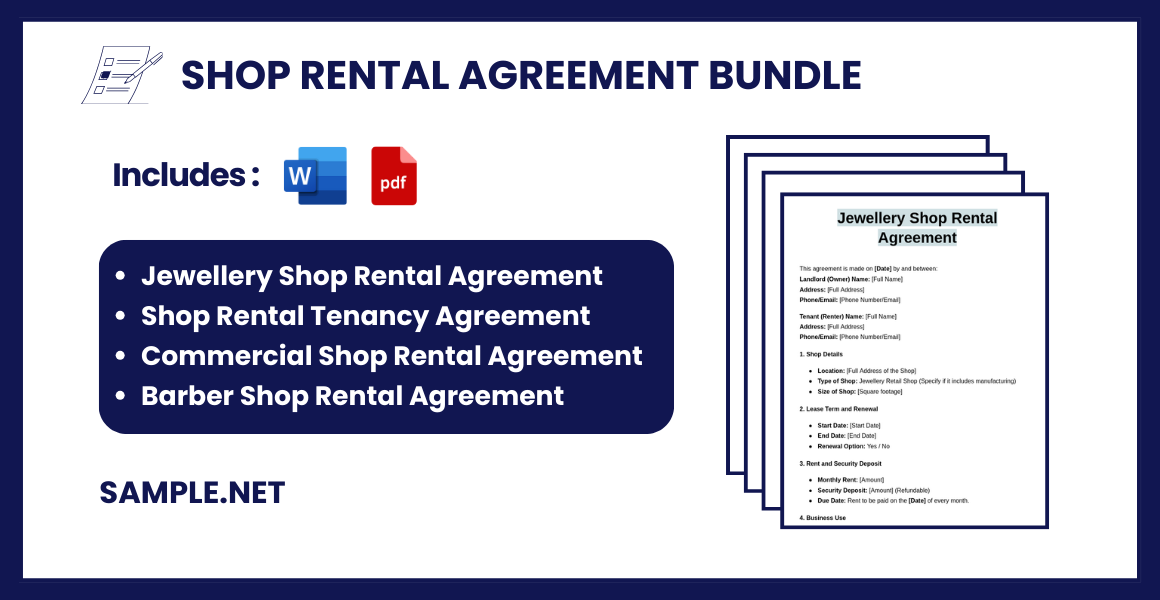
Download Shop Rental Agreement Bundle
Shop Rental Agreement Format
This Shop Rental Agreement (“Agreement”) is made and entered into on this [Date] by and between:
1. Landlord/Owner:
Name: [Landlord’s Full Name]
Address: [Landlord’s Address]
Contact Number: [Landlord’s Phone Number]
2. Tenant/Renter:
Name: [Tenant’s Full Name]
Address: [Tenant’s Address]
Contact Number: [Tenant’s Phone Number]
WHEREAS, the Landlord is the lawful owner of the premises described below and agrees to lease it to the Tenant under the following terms and conditions.
1. Property Details
The property subject to this agreement is a shop located at:
Address: [Full Address of the Shop]
Shop Description: [Type, Size (in sq. ft.), and Other Notable Features]
2. Term of Lease
The lease shall commence on [Start Date] and will continue until [End Date], unless terminated earlier as per the terms of this agreement. The lease can be:
- Fixed-Term Lease (Ending on the specified date)
- Renewable Lease (Subject to mutual agreement of the parties)
3. Rental Amount and Payment Terms
- Monthly Rent Amount: [Amount in currency, e.g., $500]
- Due Date: Rent must be paid on or before the [Date] of each calendar month.
- Mode of Payment: [Bank Transfer, Cash, Cheque, etc.]
- Late Payment Fee: [Fee amount or percentage] will be charged if payment is delayed beyond [Number of days] days.
4. Security Deposit
The Tenant shall pay a refundable security deposit of [Amount in currency], which will be returned at the end of the lease period, subject to the fulfillment of all obligations and deduction of any damages or unpaid dues.
5. Use of Property
The premises shall be used for commercial purposes only, specifically for operating a [Type of Business, e.g., Retail Store, Grocery, Salon, etc.]. The Tenant is prohibited from using the premises for illegal, immoral, or hazardous activities.
6. Maintenance and Repairs
- Tenant’s Responsibility: The Tenant shall maintain the premises in a clean, safe, and tenantable condition.
- Landlord’s Responsibility: The Landlord is responsible for major structural repairs, including plumbing, electrical, and other issues not caused by the Tenant’s negligence.
7. Alterations and Modifications
The Tenant shall not make any major alterations, modifications, or renovations to the premises without prior written consent from the Landlord.
8. Utilities and Other Charges
The Tenant is responsible for paying the following charges:
- Electricity Bill
- Water Bill
- Gas (if applicable)
- Internet/Wi-Fi
- Other Utility Charges (Specify if applicable)
The Landlord will provide the necessary utility connections and ensure they are functional at the start of the lease.
9. Insurance
The Tenant is responsible for obtaining insurance for their stock, inventory, and any business equipment inside the shop. The Landlord is responsible for insuring the building structure.
10. Subletting and Assignment
The Tenant shall not sublet, assign, or transfer the lease to any third party without the written consent of the Landlord.
11. Termination and Notice Period
- Early Termination by Tenant: Tenant may terminate the lease by providing [Number] days’ prior written notice to the Landlord.
- Early Termination by Landlord: The Landlord may terminate the lease by providing [Number] days’ prior written notice.
- Breach of Agreement: In case of breach of any terms of this agreement, the aggrieved party may terminate the lease and seek damages as per applicable laws.
12. Inspection of Premises
The Landlord may inspect the premises with [Notice period] prior written notice to the Tenant, except in emergencies.
13. Dispute Resolution
In the event of a dispute, both parties agree to attempt resolution through mediation. If mediation fails, the matter will be referred to arbitration under the laws of [State/Country].
14. Force Majeure
Neither party shall be held liable for non-performance or delay due to events beyond their control, including natural disasters, acts of government, or other unforeseen circumstances.
15. Governing Law and Jurisdiction
This agreement shall be governed by the laws of [State/Country]. Any disputes arising from this agreement will be subject to the jurisdiction of the courts in [City/State].
16. Signatures
Both parties have read and understood the terms and conditions of this Shop Rental Agreement. By signing below, both parties agree to abide by these terms.
Landlord’s Signature: ________________________
Name: [Landlord’s Full Name]
Date: [Date]
Tenant’s Signature: _________________________
Name: [Tenant’s Full Name]
Date: [Date]
Witness 1 Signature: _________________________
Name: [Witness 1 Name]
Date: [Date]
Witness 2 Signature: _________________________
Name: [Witness 2 Name]
Date: [Date]
What is a Shop Rental Agreement?
A Shop Rental Agreement is a formal legal document that defines the leasing terms between a property owner (landlord) and a business owner (tenant) for a commercial shop space. It outlines obligations, rental fees, lease duration, maintenance responsibilities, and other essential terms. This agreement ensures both parties have a clear understanding of their roles, thus avoiding potential legal conflicts. It provides a structured approach to leasing a commercial shop, which is crucial for business continuity and legal compliance. You can also see more on Basic Rental Agreements.
Key Elements of a Shop Rental Agreement
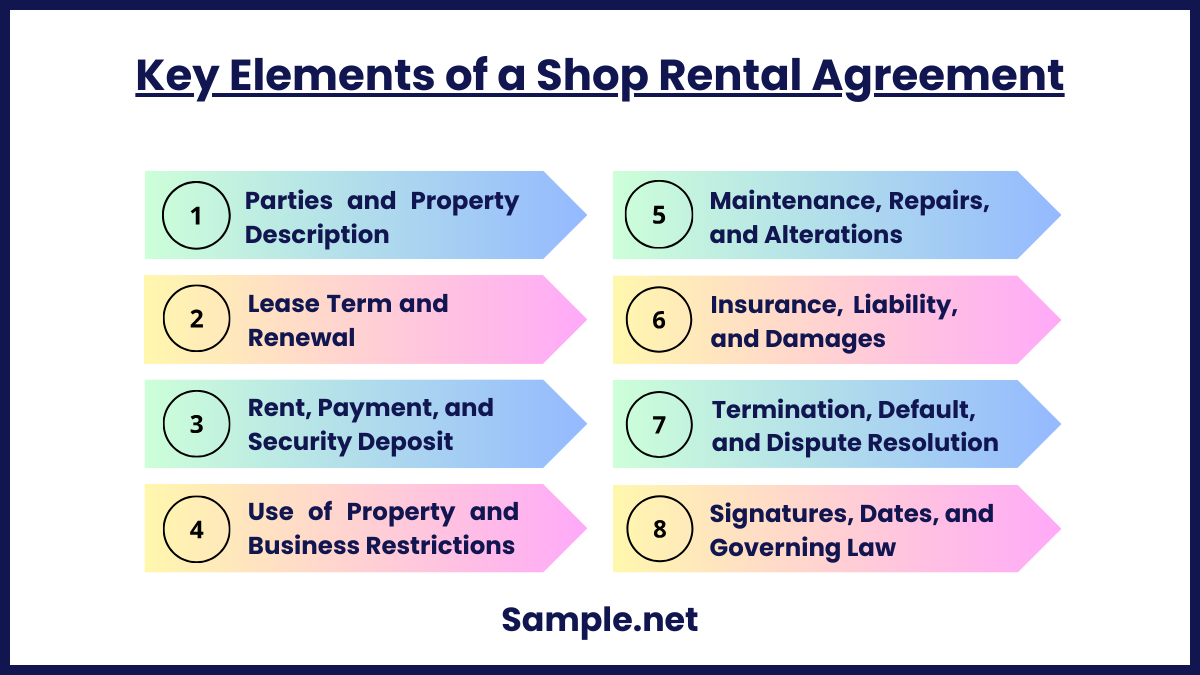
1. Parties and Property Description – Identifies the landlord (owner) and tenant (renter) with their full legal names, contact details, and a description of the shop, including its address, unit number, square footage, and any unique features or facilities included.
2. Lease Term and Renewal – Specifies the start and end dates of the lease, the rental period (e.g., 1 year, 3 years), and renewal options or extensions available to the tenant.
3. Rent, Payment, and Security Deposit – Details the rent amount, payment schedule (monthly, quarterly), payment methods, penalties for late payments, and the security deposit amount, its purpose, and conditions for refund or forfeiture at the end of the lease. You can also see more on Commercial Lease Agreements.
4. Use of Property and Business Restrictions – Defines the type of business activities allowed on the property and any specific restrictions on its usage or business operations.
5. Maintenance, Repairs, and Alterations – Specifies the responsibilities of the landlord and tenant for maintenance, repair duties, and any permissions required for alterations or modifications to the shop.
6. Insurance, Liability, and Damages – Outlines the type of insurance the tenant must maintain (e.g., liability insurance) and clarifies the party responsible for damages, injuries, or accidents on the property.
7. Termination, Default, and Dispute Resolution – Defines the grounds for breach of contract, the process for early termination, and the methods of dispute resolution (e.g., mediation, arbitration, or legal action). You can also see more on Business Lease Agreements.
8. Signatures, Dates, and Governing Law – Contains the signatures of both parties, the date of the agreement, and the governing laws that apply to the lease contract.
How to Write a Shop Rental Agreement
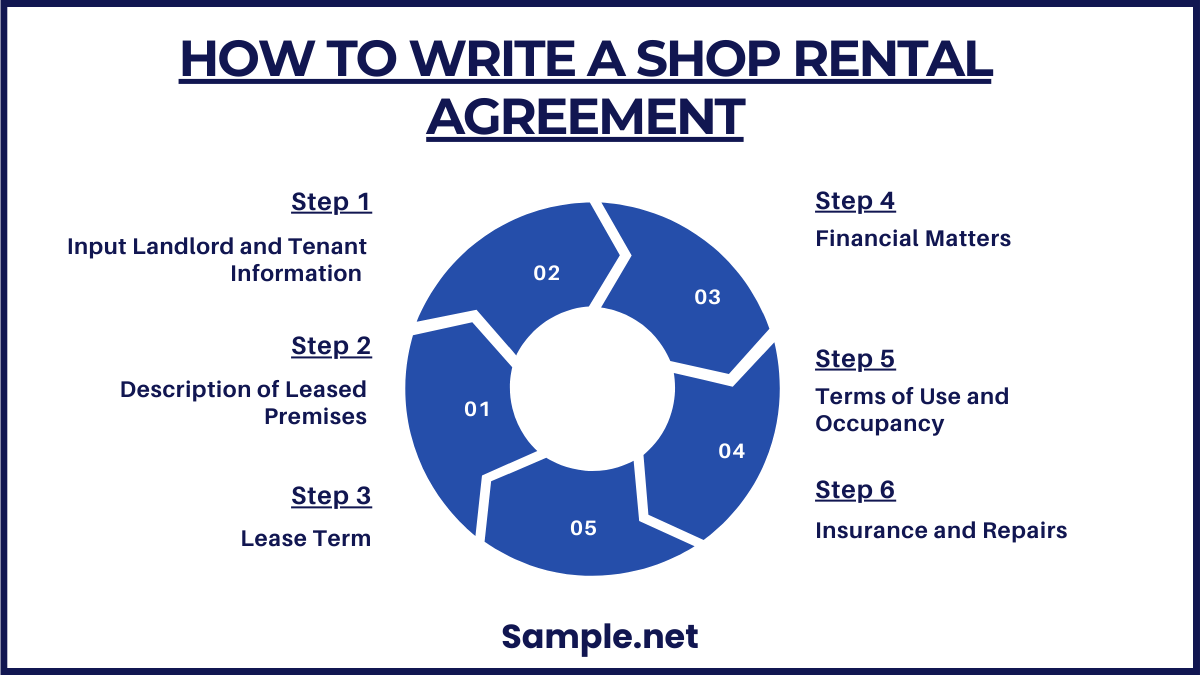
Now that you have gone through both of the curated lists, you are more than welcome to begin writing your shop rental agreement. If you are still confused, don’t worry because this article provides you with the shop rental agreement format that is commonly used by most. Remember that in making a rental agreement for a shop, you have to cater to the specific needs and details of your tenant. Make sure to thoroughly discuss the details with them before finalizing and signing the document. You can also see more on Warehouse Lease Agreement.
Step 1: Input Landlord and Tenant Information
The landlord is known to be the owner of the shop which will be rented out to the tenant, who is the party responsible to rent the shop as a means to operate their business. Like the first section, this will be immediately seen and read by whoever will be receiving the document which is why including the names of the landlord and tenant are important. Along with this is the information such as contact details and emails. If the property owner is a real estate agent or company, you can include the logo.
Step 2: Description of Leased Premises
This section refers to the physical space that the tenant is renting such as a retail shop. You can opt to include a more elaborate detail of the property or opt to provide a visual guide through a property map. Both should include details about the size and if the tenant has access to amenities such as parking, maintenance, security, snow removal or landscaping, and heating or air conditioning.
Step 3: Lease Term
This section entails defining the number of years or months for which the space or layout will be leased, which can range from the negotiated start and finish dates along with an agreed-upon time frame in months or even years. This includes a periodic rental agreement such as a month-to-month timeframe. But this could also be an instantaneous renewal in which the lease continues to renew until a party sends notice to terminate or end the lease. You can also see more on Retail Lease Proposal.
Step 4: Financial Matters
Money is an undeniable factor in any shop rental agreement, which is why this section covers the amount of money such as the base rent to alert the tenant of how much will be paid. Ensure that the base rent amount is clarified so that the starting cost of the lease is understood by both parties. Landlords may ask tenants to contribute to the costs of operating and maintaining the entire building, such as real estate taxes, utilities, and communal advertising expenditures. This is either a set price or a percentage based on the size of the tenant’s footprint or store.
Step 5: Terms of Use and Occupancy
The tenant and landlord must agree on what the property may and cannot be used for, such as cafes, food services, product sales, or clothing, as well as what is and is not permitted in the rented space and common spaces, such as smoking, after-hours noise, or rubbish dumping. It can be specified that any violation may warrant numerous warnings and possible agreement termination.
Step 6: Insurance and Repairs
The different types of alterations and modifications that can be performed to the premises, as well as who is accountable for the costs. For example, if a tenant intends to open a restaurant that necessitates improvements or construction, the lease should specify who is responsible for funding and monitoring the project. You can also see more on Sublease and Lease Agreements.
FAQs
How much is a deposit for a commercial lease?
Landlords frequently require a rent deposit from new business tenants, usually in the amount of three to six months’ rent. This money is stored by the landlord in a designated account and can be accessed if the tenant fails to pay the rent or otherwise violates the lease, resulting in a financial loss to the landlord. A pop-up shop rental agreement could be a different case because it could have a different amount necessary for the deposit.
Why is a rent agreement important?
A rent agreement is a crucial document that establishes the terms of a landlord-tenant relationship. We often don’t understand that the words contained in the lease agreement might determine whether the landlord-tenant relationship will be a long-term friendship or a sour one. You can also see more on Rental Lease Agreement.
What does a commercial landlord have to provide?
A commercial landlord is responsible for all of their property’s fixtures and fittings, which must be installed and maintained safely. The renter shall be held accountable for the safety and upkeep of any fixtures and fittings they have installed, as stated in the lease.
What are the differences between a fixed-term lease and a periodic lease?
A fixed-term lease has a specific start and end date, often lasting for a year or more. Once it ends, a new lease must be signed. In contrast, a periodic lease continues automatically on a monthly or weekly basis until one party terminates it. This flexibility allows tenants to leave with short notice but may come with higher rental rates.
How does a percentage lease work in a Shop Rental Agreement?
In a percentage lease, the tenant pays a base rent plus a percentage of their business’s revenue. This type of lease is often used in retail businesses where the landlord shares in the tenant’s business success. For example, if the tenant’s monthly revenue is $50,000 and the percentage rate is 5%, they would pay an additional $2,500 on top of the base rent. You can also see more on Basic Rental Contracts.
What are the consequences of breaching a Shop Rental Agreement?
Breaching a Shop Rental Agreement can result in eviction, legal action, or financial penalties. For example, if a tenant fails to pay rent, the landlord can issue a formal eviction notice and file a court case. Breaches related to property damage may result in the loss of the security deposit or liability for repair costs. You can also see more on Booth (Salon) Rental Agreements.
